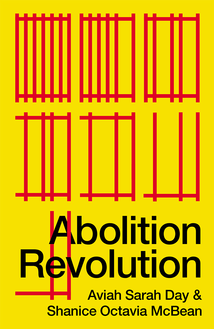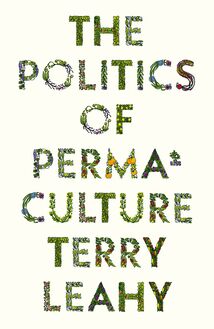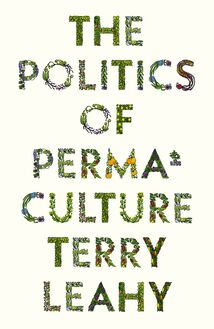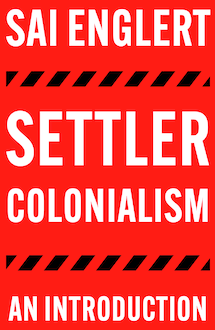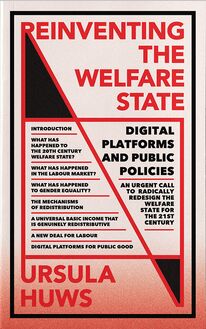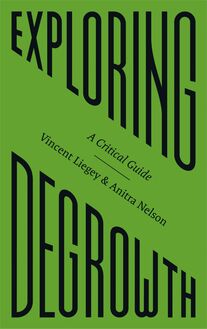Abolition Revolution , livre ebook
127
pages
English
Ebooks
2022
Vous pourrez modifier la taille du texte de cet ouvrage
Obtenez un accès à la bibliothèque pour le consulter en ligne En savoir plus
Découvre YouScribe en t'inscrivant gratuitement
Découvre YouScribe en t'inscrivant gratuitement
127
pages
English
Ebooks
2022
Vous pourrez modifier la taille du texte de cet ouvrage
Obtenez un accès à la bibliothèque pour le consulter en ligne En savoir plus
Publié par
Date de parution
01 novembre 2022
Nombre de lectures
0
EAN13
9780745346533
Langue
English
George Floyd’s murder in Minneapolis triggered abolitionist shockwaves. Calls to defund the police found receptive ears around the world. Shortly after, Sarah Everard’s murder by a serving police officer sparked a national abolitionist movement in Britain. But to abolish the police, prisons and borders, we must confront the legacy of Empire.
Abolition Revolution is a guide to abolitionist politics in Britain, drawing out rich histories of resistance from rebellion in the colonies to grassroots responses to carceral systems today. The authors argue that abolition is key to reconceptualising revolution for our times - linking it with materialist feminisms, anti-capitalist class struggle, internationalist solidarity and anti-colonialism.
Perfect for reading groups and activist meetings, this is an invaluable book for those new to abolitionist politics - whilst simultaneously telling a passionate and authoritative story about the need for abolition and revolution in Britain and globally.
Introduction
Thesis 1. A national abolitionist movement has erupted in Britain. Abolition is a tool to reimagine revolutionary politics.
Thesis 2. Our journey to abolition in Sisters Uncut was long and bumpy: abolition is a road, not a destination!
Part 1 - The Tools of Police Power
Thesis 3. Race is at the heart of policing; without race policing can’t function. Dismantling the police means dismantling race.
Thesis 4. The police need public consent in order to exist. Withdrawing our consent brings us closer to abolition.
Thesis 5. Coercion and control are the tactics of abusers, and coercing and controlling the working class is the job of the police. Abolition is class struggle!
Thesis 6. Women have always experienced the sharp end of state violence: if your feminism is carceral, it’s bullshit.
Part 2 - Roots In Empire: The History of Criminalisation and Resistance
Thesis 7. Class struggle in the 18th century sparked a prison abolitionist fire. Abolition is nothing new.
Thesis 8. The UK rehearsed its strategies of control and punishment in the colonies. Abolition continues anti-colonial and class struggle in Britain today.
Part 3 - Systems of Criminalisation Today
Thesis 9. From student revolt to urban rebellion, abolition must harness the radical energy of our youth!
Thesis 10. Bordering and policing protects colonial, imperialist and capitalist wealth. Open borders is abolition and abolition is open borders!
Thesis 11. From the streets to the cell block incarcerated people have organised to resist state violence.
Thesis 12. The 'War on Terror' expanded policing powers into everyday institutions. Fighting Islamophobic racism is central to abolitionist struggle.
Thesis 13. Capitalist crisis, neoliberalism and gentrification drive racist ‘gangs’ policing in Black communities. Abolition is a struggle against the whole system!
Part 4 - Abolitionist Futures
Thesis 14. Gypsy, Roma and Traveller communities have led fierce resistance to state violence. Abolition must unite different struggles.
Thesis 15. Crime is a social construct, but harm is real. Revolution is an essential ingredient to building transformative approaches to harm from the community level up.
Thesis 16. Revolution needs you…
Part 5 - Symposium: Abolition in the UK
Publié par
Date de parution
01 novembre 2022
Nombre de lectures
0
EAN13
9780745346533
Langue
English
Abolition Revolution
A powerful analysis of the transformative potential of the abolitionist project. Day and McBean show why we must go beyond shifting a few dollars around to directly challenge the logics of capitalism, racism and patriarchy at the heart of the carceral state.
-Alex S. Vitale, author of The End of Policing
Not only does this superlative book expertly dismantle the dogmas of liberal anti-racism and carceral feminism which reproduce the systems of power, it also points the way forward to a post-abolitionist future in a meticulous, clear-headed way. Highly recommended.
-Silvia Federici, author of Caliban and the Witch
A thorough, engaging and important read - that held me through new information whilst never sacrificing depth. I m so glad this book exists!
-Travis Alabanza, award winning writer, performer and theatre maker
Essential study for organisers and scholars across borders, Abolition Revolution vibrantly chronicles the cultural and political landscape of abolitionist practices in the UK. Day and McBean weave a powerful array of analysis, histories and voices - from organisers, scholars, unionists and/or incarcerated people - to offer profoundly necessary historical lessons that formulate the pathways that shape our abolition feminist revolutions.
-Erica R. Meiners, co-author of Abolition. Feminism. Now.
Aviah Sarah Day and Shanice Octavia McBean speak with such eloquence, conviction and passion that readers will want to join their struggle for abolition revolution. Their trenchant and concrete analysis of the criminalisation of Black and Asian youth, of carceral white bourgeois feminism, gentrification, and police and state violence, makes for essential reading. Let s heed their call for an abolitionist future.
-Fran oise Verg s, author of A Decolonial Feminism
FireWorks
Series editors:
Gargi Bhattacharyya, Professor of Sociology, University of East London
Anitra Nelson, Associate Professor, Honorary Principal Fellow, Melbourne Sustainable Society Institute, University of Melbourne
Also available
Empire s Endgame:
Racism and the British State
Gargi Bhattacharyya, Adam
Elliott-Cooper, Sita Balani,
Kerem Nisancioglu, Kojo
Koram, Dalia Gebrial, Nadine
El-Enany and Luke de Noronha
Settler Colonialism:
An Introduction
Sai Englert
Reinventing the Welfare State:
Digital Platforms and Public
Policies
Ursula Huws
The Politics of Permaculture
Terry Leahy
Exploring Degrowth:
A Critical Guide
Vincent Liegey and Anitra
Nelson
Pandemic Solidarity:
Mutual Aid during the Covid-19 Crisis
Edited by Marina Sitrin and Colectiva Sembrar
Abolition Revolution
Aviah Sarah Day and Shanice Octavia McBean
First published 2022 by Pluto Press
New Wing, Somerset House, Strand, London WC2R 1LA and Pluto Press Inc.
1930 Village Center Circle, Ste. 3-384, Las Vegas, NV 89134
www.plutobooks.com
Copyright Aviah Sarah Day and Shanice Octavia McBean 2022
The right of Aviah Sarah Day and Shanice Octavia McBean to be identified as the authors of this work has been asserted in accordance with the Copyright, Designs and Patents Act 1988.
British Library Cataloguing in Publication Data
A catalogue record for this book is available from the British Library
ISBN 978 0 7453 4652 6 Hardback
ISBN 978 0 7453 4651 9 Paperback
ISBN 978 0 7453 4655 7 PDF
ISBN 978 0 7453 4653 3 EPUB
This book is printed on paper suitable for recycling and made from fully managed and sustained forest sources. Logging, pulping and manufacturing processes are expected to conform to the environmental standards of the country of origin.
Typeset by Stanford DTP Services, Northampton, England
Simultaneously printed in the United Kingdom and United States of America
This book is dedicated to Sarah Reed.
Contents
Series Preface
Acknowledgements
Introduction
Thesis 1. A national abolitionist movement has erupted in Britain. Abolition is a tool to re-imagine revolutionary politics.
Thesis 2. Our journey to abolition in Sisters Uncut was long and bumpy: abolition is a road, not a destination!
Part 1 - The Tools of Police Power
Thesis 3. Race is at the heart of policing; without race policing can t function. Dismantling the police means dismantling race.
Thesis 4. The police need public consent in order to exist. Withdrawing our consent brings us closer to abolition.
Thesis 5. Coercion and control are the tactics of abusers, and coercing and controlling the working class is the job of the police. Abolition is class struggle!
Thesis 6. Women have always experienced the sharp end of state violence: if your feminism is carceral, it s bullshit.
Part 2 - Roots In Empire: The History of Criminalisation and Resistance
Thesis 7. Class struggle in the eighteenth century sparked a prison abolitionist fire. Abolition is nothing new.
Thesis 8. The UK rehearsed its strategies of control and punishment in the colonies. Abolition continues anti-colonial and class struggle in Britain today.
Part 3 - Systems of Criminalisation Today
Thesis 9. From student revolt to urban rebellion, abolition must harness the radical energy of our youth!
Thesis 10. Bordering and policing protects colonial, imperialist and capitalist wealth. Open borders is abolition and abolition is open borders!
Thesis 11. From the streets to the cell block, incarcerated people have organised to resist state violence.
Thesis 12. The War on Terror expanded policing powers into everyday institutions. Fighting Islamophobic racism is central to abolitionist struggle.
Thesis 13. Capitalist crisis, neoliberalism and gentrification drive racist gangs policing in Black communities. Abolition is a struggle against the whole system!
Part 4 - Abolitionist Futures
Thesis 14. Gypsy, Roma and Traveller communities have led fierce resistance to state violence. Abolition must unite different struggles.
Thesis 15. Crime is a social construct, but harm is real. Revolution is an essential ingredient to building transformative approaches to harm from the community level up.
Thesis 16. Revolution needs you
Part 5 - Symposium: Abolition in the UK
Symposium
Notes
Index
Series Preface
Addressing urgent questions about how to make a just and sustainable world, the FireWorks series throws a new light on contemporary movements, crises and challenges. Each book is written to extend the popular imagination and unmake dominant framings of key issues.
Launched in 2020, the series offers guides to matters of social equity, justice and environmental sustainability. FireWorks books provide short, accessible and authoritative commentaries that illuminate underground political currents or marginalised voices, and highlight political thought and writing that exists substantially in languages other than English. Their authors seek to ignite key debates for twenty-first-century politics, economics and society.
FireWorks books do not assume specialist knowledge, but offer up-to-date and well-researched overviews for a wide range of politically aware readers. They provide an opportunity to go deeper into a subject than is possible in current news and online media, but are still short enough to be read in a few hours.
In these fast-changing times, these books provide snappy and thought-provoking interventions on complex political issues. As times get dark, FireWorks offer a flash of light to reveal the broader social landscape and economic structures that form our political moment.
Acknowledgements
We have told the stories of many people throughout this book. Stories of struggle, stories of celebration, stories of grief and loss. We want to thank all those whose stories, experiences and organising have contributed to this book. We send solidarity and support to the families of those whose stories we tell, who due to the violence of carcerality or through the passage of time, are no longer with us. We are inspired by your strength and determination.
There are many people we want to thank for helping us make this book a reality. To the organisers, academics and thinkers who have offered their time, support and reflections - from the initial seeds of the proposal through to the manuscript - we are incredibly grateful: Sita Balani, Nadine El-Enany, Kojo Koram, Rees Arnott-Davies, Luke Wenman, Sarah Lamble, Kerem Ni anc o lu, John M. Moore and Adam Elliott-Cooper.
To friends who offered their homes for writing retreats, provided fuel to keep us going and gave us their patience during our long periods of absence and frustration: Lucy Gaymer, Si n Robins-Grace, Hero Austin, Dennika Francis-Phillips, Nadia Vogel, Melissa Cespedes del Sur, Florence Dent and Bekah Sparrow.
We want to acknowledge our families who, over many years of wading through life together and in many different ways, made this book possible. A special thanks to Aviah s family: Fiona Day, Jourdan Thomas Alex Day, Bisi Ogunjimi, Da vid Tzadok. And a loving thank you to Shanice s family: P. Dyke and Shamar Tyrese Thompson.
Shout out to those who went the extra mile to contribute their thoughts and ideas by participating in the symposium, providing dope poetry and supporting us to navigate the publishing world: Kadeem Marshall-Oxley, Zahra Bei, Lydia Caradonna, Temi Mwale, Zara Manoehoetoe, Adam Elliott-Cooper (again!) and Andrew Franklin.
Thank you to our sisters, siblings and comrades in Sisters Uncut, CopWatch and the wider anti-racism and abolitionist movements, whose tenacity, fire and clarity are the backbone of this book, and everything in it.
Finally, thank you to Michael Etienne for his time and support with the finishing touches, and for his patient determination to sustain his partner Aviah, and friend Shanice, through this challenge. A special mention goes to Miriam Franklin who has been a rock of a partner to Shanice, and comrade to both of us, throughout the entire process. From doing the first (and most challenging!) edit of the symp
